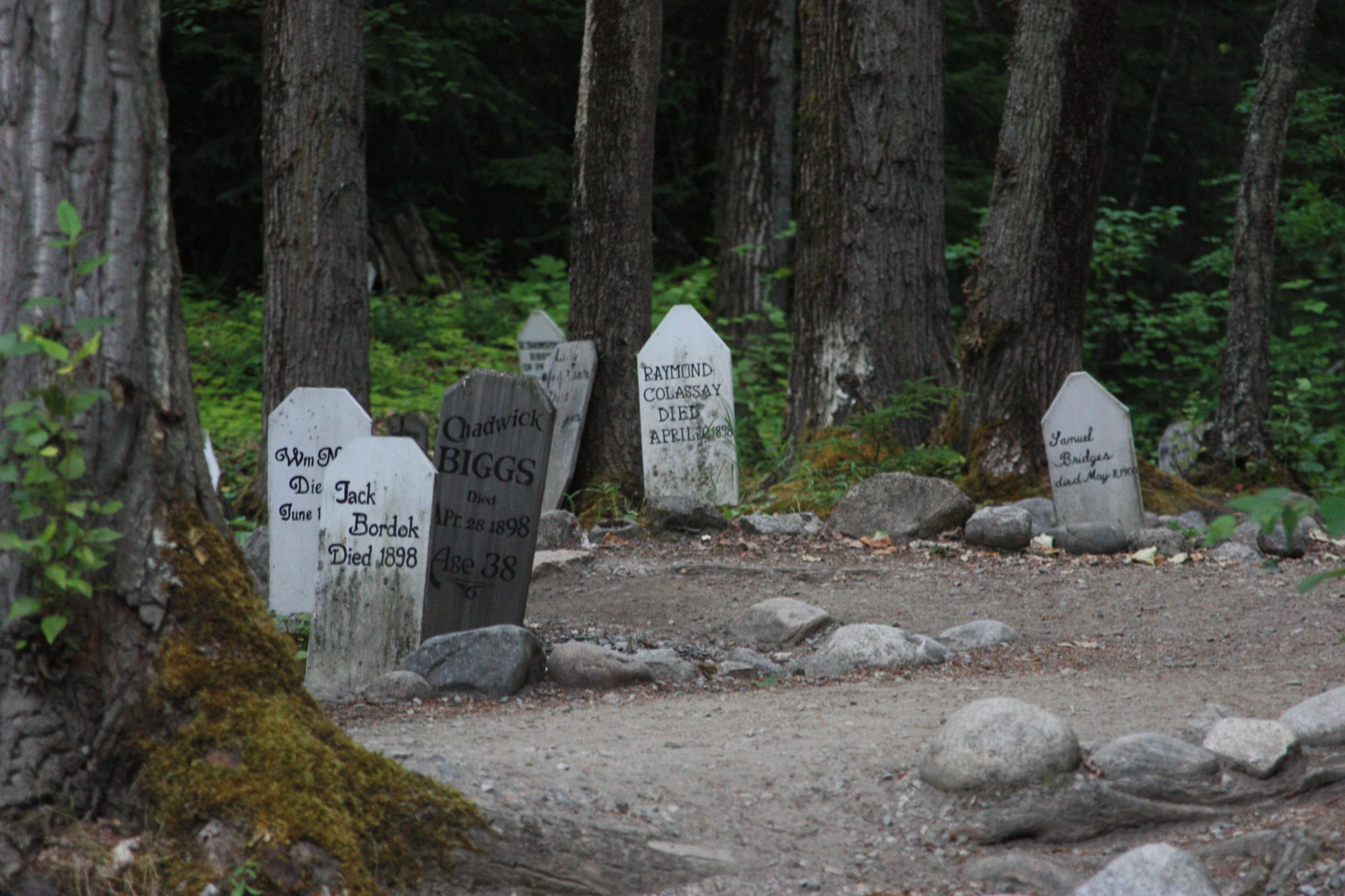
Besides Robert Service and Jack London, there were other writers about the Gold Rush.
Cy Warman was born in 1855 in Illinois. He grew up on a homestead given to his father by the U.S. government for gallant service in the Mexican War. He had a meagre education, and got his first job, at the age of five, as water boy for a railroad construction crew. When he was older he thought about being a wheat buyer, but lost all but 50 cents when the market crashed on his $1,000 investment. He failed at several other business, and went to Colorado in 1880, first helping to plant an orchard in Canon City, then moving on to work a 12-hour night shift in a smelter and reduction plant.
Colorado was in the midst of a railroad binge, and Warman was attracted to it. He decided to be a locomotive engineer. The Denver & Rio Grande hired him as a general labourer. His second day on the job, doing a particularly hot and dirty task, he impressed the foreman who recommended that he be promoted to fireman. Three years later he was an engineer on what he called “The Perpendicular Run” from Salida to Leadville. One run was enough. But his experiences during this period gave him a future livelihood recounting the noises, smells, humour and romance of railroading. He began developing his flowing writing style. The railroad poems, read to fellow railroaders, had the cadence of locomotive wheels clicking on the rails. Never particularly strong physically, Warman had to give up the railroad work in body, but never in mind or spirit.
He began writing verses and short stories about railroad life. Railroad friends backed him in publishing a magazine called The Frog in Denver but it failed financially. In 1888 he became editor of the Western Railway Magazine, a semi-monthly; it also failed. The Rocky Mountain News hired him to cover railroads, crimes and politics, but he wanted to edit his own paper, and Creede beckoned. It is said he was a friend of Soapy.
He moved to Ontario Canada in 1892 where he became well connected in Liberal party circles, and was regarded particularly highly by Frank Oliver who became the Minister of the Interior in 1905.
On April 11, 1914, in Chicago, Cy Warman died of paralysis[?]. Shortly before his death he wrote “Will The Lights Be White”:
WILL THE LIGHTS BE WHITE?
Oft, when I feel my engine swerve,
As o’er strange rails we fare,
I strain my eyes around the curve
For what awaits us there.
When swift and free she carries me
Through yards unknown at night,
I look along the line to see
That all the lamps are white
The blue light marks the crippled car,
The green light signals slow;
The red light is a danger light,
The white light, “Let her go.”
Again the open fields we roam,
And, when the night is fair,
I look up in the starry dome
And wonder what’s up there.
For who can speak for those who dwell
Behind the curving sky?
No man has ever lived to tell
Just what it means to die.
Swift toward life’s terminal I trend,
The run seems short to-night;
God only knows what’s at the end —
I hope the lamps are white.
He wrote The Last Spike and other RR stories in 1906, and “1899 Building a Railroad into the Klondike” published in 1906 by Charles Scribner’s sons; McClure’s 14:March

